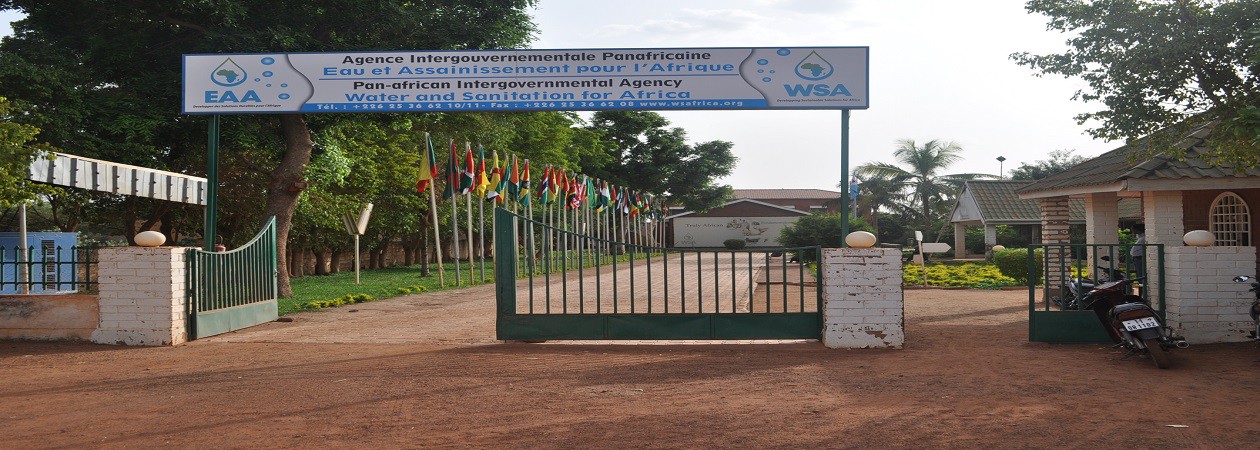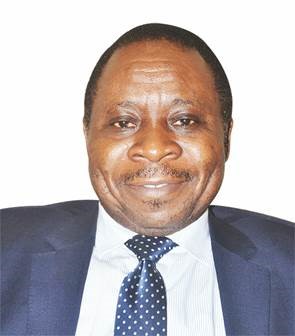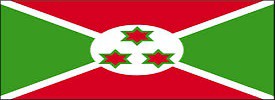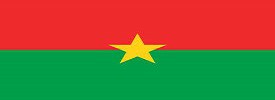ACTIVITIES REPORT
1st quarter of 2019
|
Presented by the Executive Secretariat of WSA |
March 2019 |
Introduction
In the series of reforms initiated throughout 2018, the first quarter of 2019 brings the latest touches and accelerates the operationalization of the 2018-2022 strategic plan in all its components. Thus, implementation of the strategic plan four (4) axes has been initiated in most countries, with a particular focus on projects and programs implementation. In addition, a boost has been given to the organizational audit initiated in the second half of 2018 and to the preparation of the Council of Ministers.
Fundamentally focused on the strategic plan, this report covers the period from 01 January 2019 to 31 March 2019 and reports on actions undertaken in countries-wide.
- Research-action for the development and promotion of technological innovations
As the backbone of the Agency, research-action on emerging themes and areas of specific concern will allow to develop the water, hygiene and sanitation sector. The promotion of innovation and the adaptation of technologies depend greatly on it.
The progress of research works in the different countries is as follows :
1.1. Burundi
- Research on adapted technologies for hygiene, water and productive sanitation in partnership with academic and research institutions : Beginning of the formulation and implementation of the agenda with students through the literature review (CSLP II, National Sanitation Plan, PND 2018-2027, Burundi Vision 2025)
- Sludge Management Plan (SM), one of the weak link in the sanitation chain and productive sanitation services in emergencies and sustainable development in Burundi: A literature review in the perspective of projects implementation for the rehabilitation and extension of the Buterere wastewater treatment plant and the installation of a solar panel field to remedy frequent electrical load-shedding
- Development of projects and programs in humanitarian emergency situations (natural disasters) or epidemics, such as the case of cholera in certain regions of Burundi: mapping of areas at risk and exploration with partners the possibilities of the production of mobile latrines, solar water purification systems in mobile containers, water filtration systems through the production of bio-sand filters at the household level
1.2. Cameroon
Study on households willingness to pay a tax on sanitation to define the self-financing strategy of private companies in the sanitation sector: launch of the selection of a Technical Studies Consultant under the leadership of the Procurement Commission from the Ministry of Water and Energy. Corrections have been suggested to improve the Call for Expression of Interest Document to be submitted for signature by the Minister
1.3. Cote d’Ivoire
Two research themes are currently underway:
- Innovative and sustainable method to fight against Swollen Shoot disease at a lower cost: works related to this research are lead by a doctoral training student. Research activities are currently in the literature review stage.
- Energy valorization of effluents from attiéké factories and support for its sustainable conservation: various studies are considered on the socio-economic, socio-anthropological, energy and environmental thematics. This project whose official launch is scheduled for April 2019 has actually started since February 15, 2019.
1.4. CAR
In its quest for leadership in the water and sanitation sector, the country office in Central Africa has developed a new hygiene promotion tool, card game for hygiene education in schools. It could be adapted to the community environment. This innovation will be presented during the second quarter to all sector stakeholders in the water and sanitation cluster meeting. The sample of this tool was shared with Unicef who highly appreciated it
In addition, WSA is engaged in a reflection on organizing the first water and sanitation night in CAR. Some contacts have already been made for this purpose. The water and sanitation night will be an event to mobilize resources to build water and sanitation facilities in a given locality having difficulies in accessing water and sanitation works. The project development will continue in the second quarter to mobilize funds for this event.
Also the WSA-Country Office was contacted by the Bangui University to organize an international symposium in October 2019 in Bangui on the ̏Quality and use of water resources in Central and Eastern Africa: impact on ecosystems and health̋ theme. Some partners have already expressed interest including AFD, UNESCO, CICOS, IRD, GET, University of Bangui. WSA has pledged to contribute 2 million FCFA. The reflection will continue to define the content of WSA intervention for better visibility.
1.5. Senegal
Experimental project of a suitable and accessible latrine in peri-urban and rural areas of Senegal (PROELA)a research project fully funded by the European Union with three targeted objectives:
ü Develop a range of latrine models that are adapted and accessible through the valorization of local materials;
ü Analyze socio-economic bottlenecks in accessing sanitation for vulnerable people with disabilities and formulate approaches
ü Strengthen citizen involvement to improve the sector performance
1.6. Chad
Bioenergy supply project from household waste and residues from agricultural biomasses. The overall objective of this productive sanitation project is to provide low-cost, cost-effective services to the population through the development of economically profitable activities in agriculture, using agricultural residues and municipal waste as raw materials in bioenergy production. The "digestate" from the Biogas production will be used as a biological fertilizer in agriculture.
Presented at the ̏Chad Talent 2017̋ Competence and Employment Fair the project won the first energy sector distinction awarded by the ESSO Exploration CEO (American oil company) and by the First Lady of Chad on behalf of the President of the Republic.
This project is part of the Government off-budget projects and relies mainly on innovative financing mechanisms including the Public Private Partnership (PPP) contract. This financing mechanism appears as an opportunity for local authorities to maintain or even accelerate the pace of their investments taking full advantage of the availability of private capital.
- Implementation of projects and programmes
The Agency's ambition is to relaunch operations in all country offices and develop new initiatives in most states from 2019. Thus work plans adopted at the beginning of the year are part of this dynamic. The first quarter of 2019 saw this ambition translated into facts both in terms of formulating new initiatives and calls for proposals. Overall, some speed has been given in programs implementation while new projects have been launched in some countries. Many countries saw their projects closed at the end of 2018.
Projects and programs overall status is presented in the summary table below:
Country Offices Portfolio Dashboard
|
Country |
Project title |
Financial Partner |
Client |
Period |
Comments |
|
Burkina Faso |
Study on the adaptation of school infrastructures for a better menstrual hygiene management by girls in schools |
To seek |
Provinces of Ioba, Kouritenga, Namentenga, Sanmatenga, Bougouriba, and Poni |
2019 |
Review of the state of sanitation facilities in schools, practices of girls menstrual hygienic management and propose appropriate actions to better address the issue. Results obtained are as follows: - Elaboration of all data collection tools and validation by the coordination team at the NGO Plan International. - Data collection as part of the literature review with NGOs/Associations and technical services of MENA and MEA. The field phase starts on April 1, 2019 |
|
Social housing in Bassinko/Ouagadougou |
Burkinabè Government |
Capital inhabitants |
2018-2019 |
50 social housing units completed since 2017 and currently under sale at a unit price of 6.5 million FCFA. WSA has invested 80 million FCFA in this project and intends to be reimbursed. WSA Burkina-Country office is monitoring this transaction entrusted to the CEGECI by the government |
|
|
Burundi |
Contract-Programme |
Burundese Government |
Targets at least 2,5 million persons |
2019-2023 |
Multi-year Contract-Programme, the first of which was 12 million US $ signed on December 09, 2014 |
|
CLTS approach in emergency situation |
WHO, UNICEF, JICA |
Areas at risk of epidemics in general and Ebola in particular |
Under negotiations |
Manufacturing and delivery of: - 10,000 Innovative Handwashing Devices (DLMI) to WHO - 10,000 Innovative Handwashing Devices (DLMI) to JICA - 2037 Innovative Handwashing Devices (DLMI) to UNICEF |
|
|
Integrated household waste management Project in the province of Bujumbura Mairie |
UNICEF |
Ministry of Environment, Agriculture and Livestock |
Scheduled for 12 months (under negotiation) |
- Provide support to the municipal project management -Sensitize beneficiaries to hygiene and sanitation issues - Organize the traceability system for household solid waste - Organize the traceability system for liquid sanitation - Conduct a WASH survey in all 8 primary schools of the commune |
|
|
Implementation of the CLTS approach in 6 Provinces of Burundi (Cibitoke, Bubanza, Bujumbura Rural, Bujumbura Mairie, Rumonge and Makamba) |
In the course of exploration |
Ministry of Public Health and the fight against AIDS |
Scheduled for 12 months |
During each of the provincial workshops, discussions will include: - Identifying trainers among already trained national resource persons with a good experience in initiating the CLTS approach in localities - Put a special emphasis on the exclusively practical aspect of the training based on triggering sessions in the localities - Train craftsmen masons during campaigns to promote appropriate sanitation in 50 hills - Use the CLTS approach as an entry point to launch other local sustainable development initiatives (ECOSAN / production improvement / food security) - List NGOs / local Associations that have already made representations to WSA with a view to strengthen their capacity to adopt or scale up the CLTS approach in their area of intervention - Collect, publish and disseminate provincial, national or organizational success stories, training and learning materials, tips, videos, laminated posters, picture boxes, etc. - Ensure the visibility of intervention activities through different media sources (radio, TV and print media and social networks). Expected Impacts
|
|
|
Cameroon |
Contract programme |
Cameroonian Government |
National Territory |
2017-2021 |
Request for the agreement in principle with the Minister of Water and Energy to award contracts for the execution of 08 boreholes equipped with Human Powered Pumps in an OTC mode. The strong insecurity climate prevailing in targeted localities does not favor companies enthusiasm to intervene there |
|
Congo |
CLTS and promotion of good practices in Lékoumou |
UNICEF |
Department of Lékoumou |
6 months from july 2018 |
Implementation of the CLTS approach in 40 villages and 30 schools in the department through: - Awareness on the end of open defecation - Training of sanitation committees members on water, hygiene and sanitation issues |
|
Ecological latrine construction Project |
Breweries of Congo |
Primary schools of Brazzaville |
Under negotiations |
Proposal for the construction of ecological latrines in 2 primary schools and valorisation of by-products in Brazzaville. Revised proposal submitted for funding to the Heineken Africa Foundation |
|
|
ECOSAN latrine construction and social engineering project in Mossaka |
Mossaka Malewu |
Mossaka Locality |
Under negotiations |
Technical-Financial Proposal submited to the Mossaka NGO for funding |
|
|
IEC project for improved hygiene and sanitation practices in Brazzaville |
AFD |
Ministry of Energy and Hydraulics |
31 months |
The PEPS Project was officially launched on March 27, 2019. Achievements: - Acquisition of computer equipment, rolling stock, awareness kits and visibility equipment - Training of 21 facilitators and supervisors in IEC and social marketing techniques for sustainable access to public drinking water services in Brazzaville |
|
|
IEC and Popularization of handwashing devices Project in the Department of Cuvette schools |
African Oil Group Corporation(AOGC) |
Department of Cuvette |
Under negotiations |
Project Sheet submitted to AOGC company for funding |
|
|
Cote d’Ivoire |
FDAL in Schools and Villages Programme |
Government social programme |
Rural Sanitation Division (DAR) of the Ministry of Sanitation and Salubrity |
2019 |
WSA is short-listed for the implementation of CLTS (Community-Led Total Sanitation) in the Marahoué Region (Center-West of the country) |
|
Energy recovery of effluents from attiéké factories and support for their sustainable conservation |
FIRCA |
Agricultural Cooperative Company "YEBO-EKON" (Municipality of Daloa) |
24 months |
Project in partnership with University Jean Lorougnon Guédé (UJLoG), main carrier. Contract signed on January 15, 2019 between UJLoG and FIRCA with effective start of services on February 15 |
|
|
Marketing of treatment products and promotion of new professions (Care International) |
African Development Bank |
Cities of Bouaké and Katiola |
Under negotiations |
IEC and Marketing activities for the promotion of toilets and emptying services as well as new trades related to the agricultural valorization of by-products resulting from the treatment of septic tank sludge as part of the PATER project (Promotion of access to toilets and jobs in Bouaké and Katiola through the re-use of sludge and urine) |
|
|
Guinea Bissau |
Village hydraulic project |
UEMOA |
Ministry of Public Works, Energy & Natural Resources |
Under negotiations |
12 billion CFA project for the construction of multi-purpose boreholes |
|
Niger |
Resilience and Economic Growth in the Sahel - Strengthening Resilience (USAID / REGIS-ER) |
USAID |
Regions of Maradi, Tillabery and Zinder |
2013-2018 |
Extension of the 7-month project (January to July 2019 to focus on the monitoring of achievements and the transfer of responsibilities to local institutions) |
|
CAR |
Project to improve the school environment and water coverage in Mbomou prefecture |
UNICEF |
Prefecture of Mbomou |
2018-2019 |
- Construction of 4 latrine blocks with 3 compartments (for girls and boys) with washing-basins in two schools - Construction of 10 manual boreholes in collaboration with WSA-trained child soldiers in manual drilling techniques |
|
CLTS Project in Lobaye |
UNICEF |
Lobaye |
2019 |
Financing agreement for 12 months signed and covering: - 50 new villages until FDAL verification - 157 old villages to follow in the consolidation and sustainability of the actions - Rehabilitation of latrines in 4 schools and health facilities |
|
|
IEC for the construction of 50 boreholes |
African Develpoment Bank |
Bangui + 4 Prefectures |
2018-2019 |
2nd phase of the project dedicated to the organization of the actors with the setting up of 50 water committees and sensitization of the communities |
|
|
Water for Life (PEPEV) Water Development Clusters Project |
European Union |
Prefectures of Ouham Pende, Ouham and Kémo as well as Bangui and surroundings |
8 months from november 01, 2018 |
Ongoing project for the identification and restructuring of the artisan-repairs network financed by the 10th EDF |
|
|
Capacity Building in Manual Drilling Techniques Project |
UNICEF |
Child Soldiers and Unemployed Youth |
2019 |
Convention already signed and funds positioned. Activities begin in April 2019 with Chadian expertise deemed to be more efficient (up to 50 m deep). |
|
|
Senegal |
Sustainable Improvement of Sanitary and Socio-Economic Conditions of Rural Populations Project (PADSER) |
European Union |
Sédhiou Region |
2017-2019 |
A 12 month amendment in preparation starting from December 2018. Already achieved results include: - 1004 latrines built including 623 with reservoirs for the handwashing device - 23 bio-digesters connected to latrines - 30 washing-basin devices set up in schools - 28 Sani shops set up - Communication for a change of behavior affecting 44,827 people |
|
Experimental latrine suitable and accessible in peri-urban and rural areas of Senegal Project(PROELA) |
European Union |
Periurban and rural area |
2017-2019 |
- Monitor the operation of the 18 latrine prototypes built last year in Kédougou and Tambacounda regions - Population sensitization on the use and maintenance of the 18 latrines built - Negotiations on amendments ongoing to complete all planned activities |
|
|
Project to improve access to water and sanitation in Tambacounda, Sedhiou and Kolda regions (PEPAM) |
European Union |
Tambacounda, Sédhiou and Kolda regions |
2019 |
For the Tambacounda / Kolda area: - 104 boreholes built out of 117 - 6 drinking fountains rehabilitated out of 12 - 6 gables rehabilitated out of 12 - 24 water-towers provisionally received out of 35 For the Sedhiou area: - 107 boreholes installed and connected out of 107 planned - 5 drinking fountains out of 5 - 5 gallows builtout of 5 - 5 water-towers received temporarily out of 8 |
|
|
Chad |
Contract programme |
Chadian government |
National territorry |
2017-2021 |
Follow up on the disbursement of the Government counterpart |
|
Togo |
Professionalisation of the Informal Private Operators in the Water and Sanitation Sector in Togo (POPIEAT) |
European Union |
City of Lomé |
2017-2021 |
- Reinforcement of the material capacities of the DRE and basic sanitation services through the delivery of 05 motorcycles, 03 complete water analysis kits and 07 batches of reagents for research actions - Development of a simplified manual for drilling and basic sanitation. Manual to be validated during a workshop |
|
Togo Urban Development Project-Phase 2 (PAUT 2) |
European Union AFD |
Ministry of Water and Village Water |
2016-2019 |
Project extension of 4-month to: - increase awareness and visibility actions - asses communication activities - continuation of the awareness campaign - participation in the World Water Day |
|
|
Water and Sewerage Project Phase 2 (PEAN 2) |
European Union |
City Lomé |
2018 |
- Ongoing sensitization campaign - Participation in the World Water Day |
|
|
Regional Program of Multipurpose Hydraulic Facilities for Achieving Food Security |
UEMOA |
Community of Nagbéni |
2018 |
Increased awareness, animation and communication on hygiene and sanitation for behavioral change and good management of structures |
- Capacity building of actors
In its mission in influencing policies and strategies, WSA remains very active in exchange platforms and consultation frameworks as well as in the supervision of students and trainees.
In the different countries, capacity building occupies a central place in projects and programs implemented.
Burkina Faso
Active member in the consultation frameworks and the various technical commissions, WSA took part in:
- Monitoring the implementation of hygiene, sanitation and drinking water policies and strategies.
- The annual session of the sectoral dialogue framework to review and evaluate the performance of the sector in 2018 and the 2019-2020 perspectives of the "Water, Environment and Sanitation (EEA)" sectoral policy.
Cameroun
- Strengthening the knowledge of Yaounde students health club on the 2019 World Water Day with the "Do not leave anyone behind" theme
- Accompanied civil society actors in the preparation of their contribution to the realization of the country data-sheet in relation to the participation of Cameroon in the Sector Ministers meeting organized in San José, Costa Rica by Sanitation and Water for All (SWA).
Cote d’Ivoire
As a member of the National Mirror Committee of Côte d'Ivoire Standardization (CODINORM), the Ivorian Association of Normalization recognized as a public utility, WSA participated in:
- Reading the public inquiry report of ISO 24521: 2016
- Activities related to drinking water and wastewater services
- Guidelines for the on-site management of basic domestic wastewater services
- Exchange on International Standardization ISO / PC 318: Community-wide sanitation treatment system
- Meeting of the technical committee set up by the Department of Rural Sanitation (DAR) of the Ministry of Sanitation and Salubrity, for the development of the National Strategy for Sanitation in Rural Areas (SNAR).
CAR
- Provision of sanitation equipment consisting of farm equipment to the association force verte
- Provision of computer equipment (video projector) and financial support to the women's friendly of the Ministry of Development of Energy and Hydraulic Resources during a training course on the water, hygiene and sanitation theme
- Participation in the celebration of the World Water Day 2019 edition by the provision of 300,000 FCFA to the organizing committee
Sénégal
- Training of deconcentrated and decentralized technical services and local authorities on the control of techniques of production and valorization of biofertilizers resulting from sanitation works. The technical departments are thus endowed with a good capacity for agronomic valorization on the production and use of by-products (urine, feces and digestate) as biofertilizers and the bases of a process of multiplication of the approach to benefit producers
- Support local communities to better deal with sanitation-related issues in the development of the IWRM plan.
Chad
Support in the development of a new mechanism for sustainable management and maintenance of hydraulic structures. This mechanism aims at innovative solutions for the sustainability of works made available to communities through management, maintenance and monitoring of water points guidelines.
Togo
Support of communities on the SARAR / PHAST method: principles and implementation methodology within hygiene education activities framework.
- Organizational Performance
Group discussions, development of strategic documents and the reforms initiated in 2018 provide the foundation for the effective revival and repositioning of WSA.
In the first quarter of 2019 all these organizational and institutional performance instruments were refined for greater accountability and transparency in the institution governance structure.
In the dynamics of the reforms, country offices carried out extensive restructuring of their staff to set key on essential functions. New organizational structures have been proposed for this purpose, particularly in Côte d'Ivoire and CAR.
4.1. Narrative and financial reports template
A new narrative report format based on the 2018-2022 strategic plan adopted at the beginning of the year will facilitate actions traceability hence constitute a good framework for the vision of change. The same applies to the financial report, the new framework of which will faithfully reflect all operations in terms of revenues and expenditure. These management tools are key monitoring and control elements to strengthen the institutional governance system.
4.2. Organizational audit
First versions of the basic texts submitted by the Africa Consult & Performances audit firm have collected observations and amendments from the management. Once integrated, these observations will enrich the final version eagerly awaited by all. It is the receptacle of major reforms undertaken that could revitalize WSA to better accomplish its noble mission.
4.3. States Mobilization and Partnerships
Jointly conducted by Headquarters and Country Offices, advocacy with States and partners focuses on establishing and / or strengthening partnerships to mobilize resources to support operations. The ambitious program of activities consolidated in the annual work plan strongly supports such mobilization. Thus, to varying degrees, the States have indeed contributed to the revival of the institution in accordance with their commitments made in Yaoundé in Cameroon in September 2017 at the last extraordinary council of ministers.
In order to harmonize this contribution, and with regard to sustainability issues, an amount of seventy (70) million CFA of annual contributions has been proposed as of 2019. The implementation of the restructuring plan and the annual work plan depends greatly on these resources.
- Constraints and lessons learned
5.1. Constraints
The main constraint related to the reluctance of some partners to collaborate with WSA has gradually diminished over time. Evidenced by the enthusiasm noted during this quarter in new initiatives development and projects implementation. The amplification of the financial support of States initiated in 2018 will have, in the years to come, a driving force and mobilization effect of partners in the accompaniment of WSA.
5.2. Lessons learned
From internal strategic discussions and all-round meetings with technical partners and ministerial departments, the following points emerge:
- At the programmatic level: WSA must turn to the development and negotiation of structuring and innovative projects with themes not yet covered by competitors in order to conduct its action research activities
- For the WSA visibility: mark the presence of the institution in official ceremonies, meetings of the sectoral groups, consultation frameworks and in platforms of exchanges on the drinking water, sanitation and hygiene (WASH) sector as well as in clusters in a humanitarian context. Furthermore field activities need to be emphasized with wide dissemination of results
- At the communication level: rationally occupy the space of the media and social networks to present the comparative advantages of WSA as a reference institution in terms of WASH
- In relationships management: maintain regular contact with line ministries to share the vision of change and advocate for a greater involvement of WSA in government programs implementation.
- Perspectives
For the second quarter, following results are expected:
- The Experts meeting
- The holding of the Council of Ministers
- The increase of advocacy actions
- The submission of proposals to calls for expressions of interest and calls for projects
Altogether, the first quarter of 2019 inaugurated the definitive relaunch of the institution. It is marked by WSA visibility actions in most countries, such as CAR, where the 2018 activities and the 2019 perpectives have been widely publicized on national radio and regional antennas. Participation in roundtable discussions and radio debates on hygiene, sanitation and drinking water issues provided opportunities for WSA to inform on sector issues and the need for these basic services in quality and quantity.
In the dynamics of the relaunch tailor-made or catalog training courses will be resumed with much scope. A strong return of the Agency to the fundamentals is strongly encouraged along with honouring commitments to partners, the development of research and acceleration of projects and programs implementation. Special emphasis will be placed on advocacy actions for resource and partnerships mobilization as well as the submission of proposals in calls for expressions of interest and calls for projects.
In addition, the community of practices is an opportunity for exchange and sharing of knowledge to be encouraged. It is part of WSA relaunch and repositioning as a resource center and leader in the universal coverage of drinking water, sanitation and hygiene services.
Finally, for practical organizational reasons the Council of Ministers considered during the quarter could not be held. Exchanges are underway for its holding in the next quarter. Holding this event is the management top priority in the coming months.







